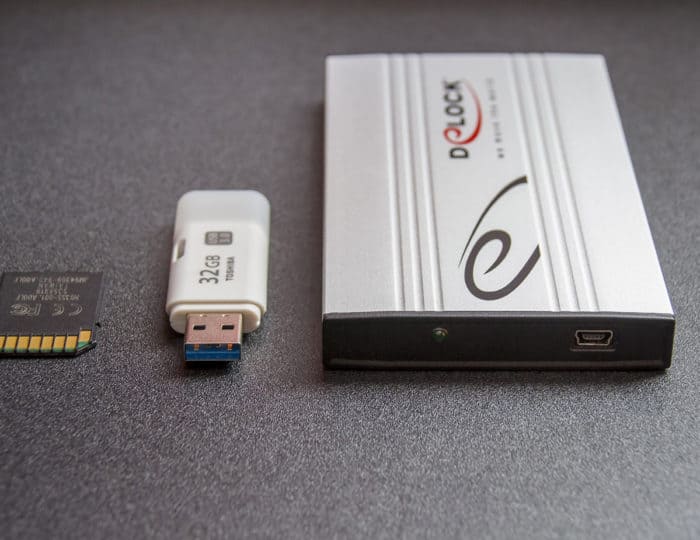You can install an endless number of plugins on your website that will get a specific job done. But what are the real must-have WordPress plugins that any website, no matter the niche, popularity or goal, should have?
I define a must-have plugin as one that you’d install as soon as you set up your website. One that has to be there from the beginning because without it, you need to go back and update all your content or could in some way suffer major damage to your site without it being there.
So what are these must use WordPress plugins you ask?
1. An SEO Plugin
The very first plugin I install on a new site is an SEO plugin. Getting your site set up so search engines and social media networks can correctly read and display summaries of your blog posts is a must. Without a clear guide letting them know what image and descriptions to focus on, they’ll grab whatever they like.
Not only that, but SEO is confusing and, for many, a big unknown. All good SEO plugins provide you with clear guides to steer you in the right direction. All while handling the more complex coding outputs for you.
This makes SEO so much easier to grasp and allows you to get on with writing that next hit article without the fear of overcomplicating how it should be written.
Some of the top SEO plugins you can install on your site are:
2. An Image Optimisation Plugin
The second plugin I add to a new site is one to help improve the optimisation of images uploaded to blog posts. Images are one of the biggest factors impacting the speed of your site and the most common item not addressed correctly by new website owners, making it a must-have plugin in my mind.
With Google putting a bigger focus on a websites page experience as a whole (you can learn how to assess your websites page speed here), getting this simple task wrong can leave a lasting impression on the performance of your site.
The great thing about these plugins is they work in the background for you once set up. And while they’ll never replace you spending time editing/cropping/resizing your images before uploading to your site. They do make a great catch-all option to avoid massive images ending up on your site.
Image optimisation plugins worth taking a look at:
3. A Backup Plugin
No matter how careful you are, at some point in your blogging life, you’ll accidentally delete something, have your site hacked or need to migrate your site from one web hosting provider to another.
Some might say a backup plugin isn’t really a must-have WordPress plugin, as your web host will most likely be taking backups of your site. And that’s true most do, but as far as I’m concerned, having a backup of your site is the best insurance you can get for a website and the more of them you have, the better off you are.
If you find yourself in a position where your blog is making you enough money to live off, and it gets hacked or, for some reason, is deleted. You want to know that you have a copy of it that can be quickly restored to get you online again.
Three different backup plugins I find most commonly used are:
4. A Spam Prevention Plugin
Spam emails invade our inbox daily, so as expected, you need a WordPress plugin to handle the spam comments your website is likely to receive.
Short of disabling comments on your site, you need a plugin to hold back the flood gates of spam your site will receive, or you’ll end up spending all day every day managing some of the rubbish that will come flooding in.
A spam plugin will auto classify the worst of the spam and delete it for you, leaving anything it’s not 100% sure of for you to moderate as you see fit. Having fixed sites that had no comment spam protection, the minimal cost of what these plugins save you makes them a must-have plugin to get installed as soon as your blog is online.
Both of these end up being paid offerings but when it comes to spam its worth the small cost:
5. A Caching Plugin
A slow website will turn readers away, impact your ranking in search engines and frustrate you as you work on your website. To help improve it, no matter who you use to host your website, a caching plugin can dramatically boost your performance.
When a reader visits your site the server processes the request and pulls together your images, written content, plugin and theme coding to create the page you see in your web browser. Now every time a visitor comes to your site your web server has to handle all those processes each time.
What a caching plugin does is save that fully generated page the first time its visited. Next time someone comes to visit that same page, instead of the server doing all the work to create the page again the caching plugin says “hang on use this saved copy instead“.
Think of it as taking a photocopy of that original creation of the page and sending that to everyone else who asks to see it. Instead of hand writing the content for each person that would like to see it.
By not having to re-create the page again, you save your server work and, in turn, make it quicker to show the page to your reader.
There are so many caching plugins but these three have more often than not given me the results I was after:
Which Plugins Do You Recommend?
I know you don’t want to see a list of plugins and not get a clear recommendation on which one from each category you should use.
So here are the 5 must-have WordPress plugins I personally use from the above lists.
- Yoast SEO – Has been a bit of a standard in the industry for some time now. Does the job without too many other extra options that can distract. However, SEOPress has piqued my interest more and more of late.
- ShortPixel – We’ve written about image optimisation with Shortpixel before. It’s a great plugin that has time and time again got the job done where some others failed. I recommend you take out a paid plan with them to get the best value.
- Updraft – Backups are insurance for your website. I like Updraft as it allows a simple setup to send your site backups to online cloud storage locations. Meaning if your web server goes down, your backup is saved safely away from it, and it can then be used to restore as well.
- Akismet – But only just. It’s starting to get that bit more pricey for those selling products or running ads on our sites. May very well be swapping to Cleantalk soon.
- WP Rocket – It’s so much more than just a caching plugin these days. With Googles push to a mobile-first internet, you want to ensure you are doing everything you can to ensure your site speed is on the money.
And there you have it. My take on 5 WordPress plugins you just need to have installed on your site to set it up for success.
While there are many others you can use, the above categories of plugins can be used on any niche or type of site with a great deal of success. Which is why they are my must-have options for any WordPress website.



